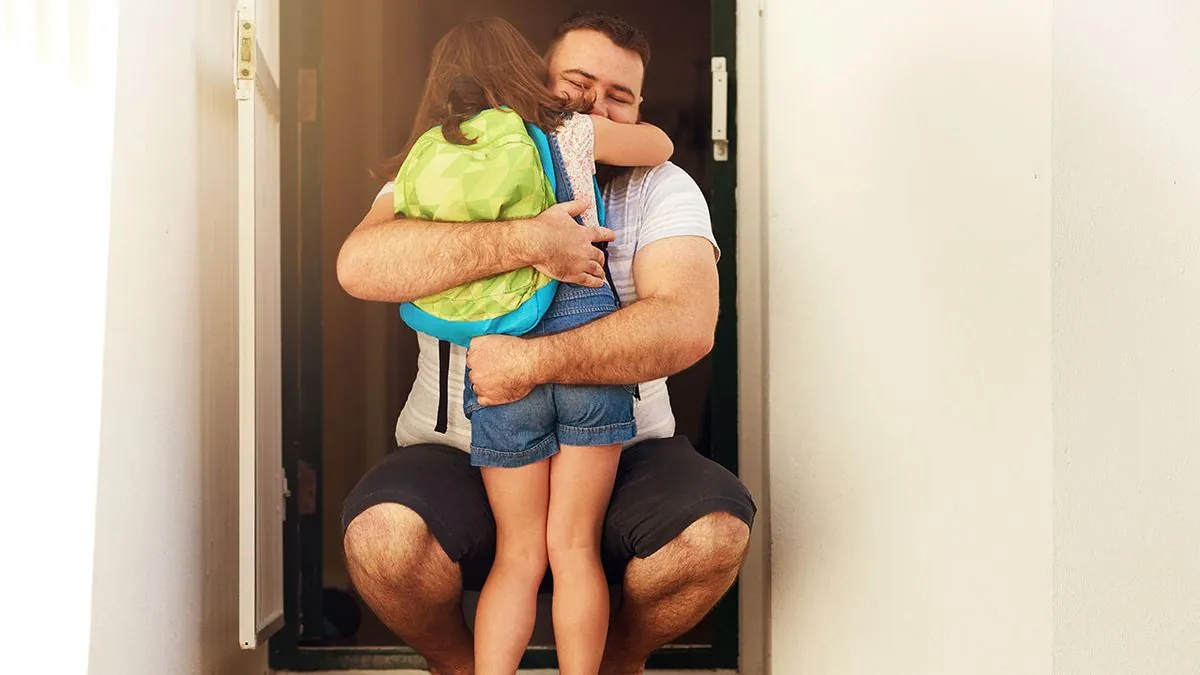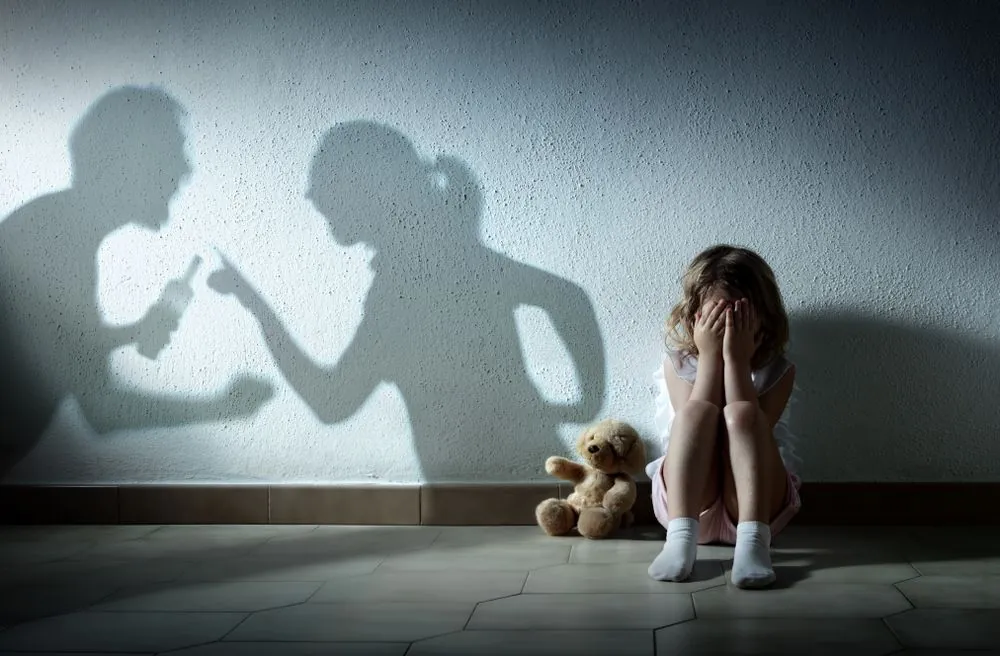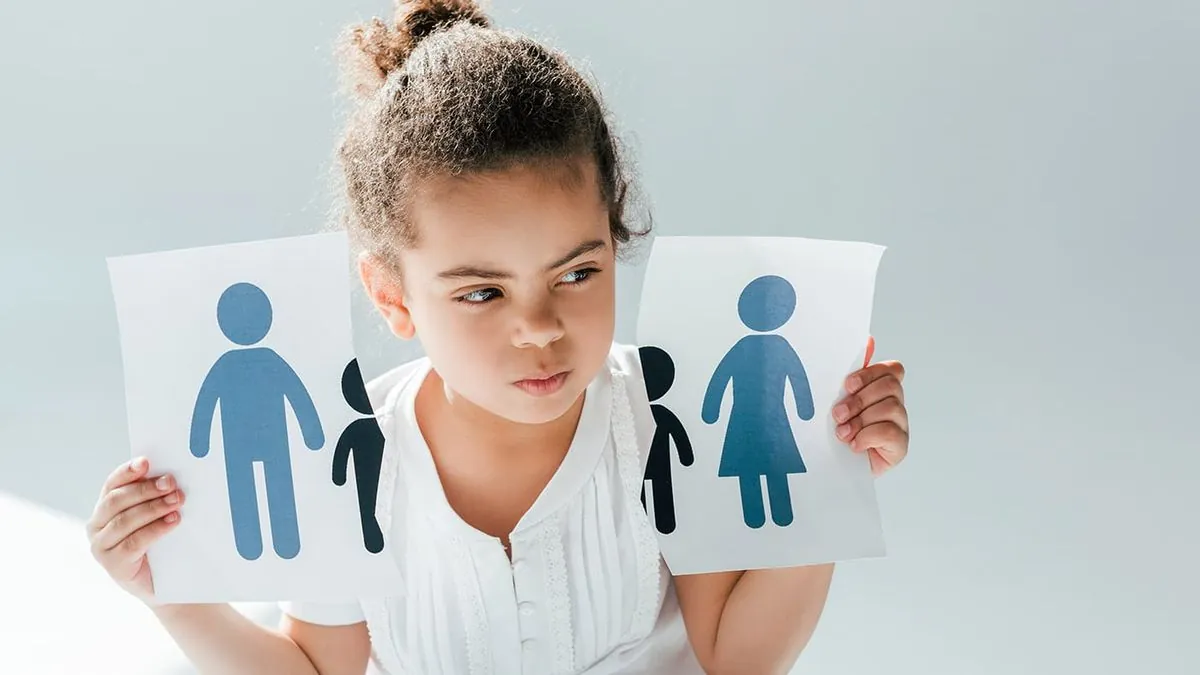“The younger the child, the more stressful a parent's divorce can be for him or her": psychologist tells how best to talk about divorce with children
Kyiv • UNN
The expert explained how to properly inform a child about a divorce and support his or her emotional state. It is important to maintain stability in the child's life and avoid involving him or her in conflicts between parents.

UNN talked to Iryna Rudnytska, a psychologist and author of a blog about psychology, about how to talk to a child about divorce in a less traumatic way, how this process can affect their future personal life, and what to do if a child feels guilty about their parents' divorce.
In the third year of the full-scale war, divorce statistics in Ukraine began to grow rapidly. The divorce process itself is quite difficult on a psychological level for both partners. After all, as the expert noted, the termination of a relationship can be equated to the death of a loved one. But children of divorcing parents are also exposed to significant stress. After all, in this case, not only is the family destroyed, but life changes completely. During a divorce, it is important to provide children with the right information and support their emotional state. For younger children, it is important to explain the situation in a simple and accessible way, avoiding details of conflicts between parents so as not to create additional pressure. Parents should emphasize that the child will be loved equally and will continue to be cared for, regardless of what happens between mom and dad.
What is the best way to tell your child that you and your partner are planning to divorce?
First of all, you have to make the final decision to divorce. And preferably, after discussing it with your partner. Because if you yourself are still hesitating, you don't need to drag your child into your emotional swing. Moreover, you should never consult with children: “What do you think, should I get a divorce or not?”. This is an adult decision and adults make it. And children are informed as if it were a fait accompli. Of course, this should be said in as supportive a manner as possible and in a form that is accessible to the child's age. It is better when both parents or the mother inform. Because usually the mother is the safest figure for the child. And you should discuss all the details of the child's future life in advance: with whom, where the child will live, how often he or she will meet the other parent. You should do everything you can to ensure that there are as few changes in the child's life as possible due to your divorce. At such a stressful time, it is important for children to have as much stability as possible to help their psyche.
Next , if you feel guilty about your child, it is better to work it out with a psychologist First . Because your guilt will cause resistance, resentment, tension in the child, and the conversation May not work out. To get rid of guilt, realize that it is more important for your child to see happy parents, even if they are no longer together. This will be much better than watching her parents who are unhappy and sacrifice their happiness for her. And never hide behind a child.
How can parents better communicate with their child about divorce to minimize stress?
The main idea is: "my dad and I are no longer happy with each other. So we decided to get a divorce and live separately. But we adults are getting divorced. Neither mom nor dad leave you! We'll still both take care of you. We are your parents-and that's forever! Nothing will change in your life." Here you should only tell the truth. Don't be fooled if this isn't the case. And, for example, moving or changing a kindergarten or school, explain the real reason.

How can divorce affect different age groups of children? Is there a difference in the reactions of young children and teenagers?
The younger a child is, the more stressful a parental divorce can be for them. But the younger the child is, the more he or she is affected by the mother's emotional state. In other words, the stress will be directly proportional to the mother's emotional stress. That's why the mother's stable state is so important - for this, the whole family needs to mobilize, if possible: the child's father and grandparents need to take an interest in the child's life on their own, and ask the mother what help they need, share the care and responsibility for the child. And, of course, they should give the woman time for herself so that she can restore her resources and be a reliable, stable support for the child.
But middle-aged children can be equally attached to both mom and dad. It is important for them to maintain enough communication with the parent with whom they will not live.
How does it affect a child if one parent deliberately restricts communication with the other?
It is very difficult for a child. It's as if the child is offered to choose one of the parents and abandon the other. But at the subconscious level (and even at the cellular, genetic level), a child is half father and half mother. Just imagine, each of our cells is half father's and half mother's. And we are actually offered to give up half of ourselves. This creates a huge internal conflict for the rest of our lives.
How do children perceive it when one parent builds a clear daily routine and the other constantly creates a festive atmosphere? And what is more useful for a child?
Do not compensate for the feeling of guilt with gifts and fun. "Holiday dad" is a dangerous parenting model. First, you again oppose yourself to the child's mother and lay a time bomb when the child learns to achieve his goal with manipulations: "if mom does not allow it, then you can squeeze dad." Or even blackmail:"if you don't do it, then you're bad, then I'll go to my dad, he's better than you." Dad, along with mom, is responsible for parenting, solves completely different, including unpleasant issues. Of course, you should not pay off with gifts, a holiday and a lack of routine.
How can a new relationship between parents affect a child? Is there a certain period of adaptation to this?
There is a period when you need to open up and let go of this loss that has happened to you. Because divorce is a loss that is close to the death of a loved one in terms of stress. In addition, it is not enough to break up - it is important to understand: "what model of relationship I had, what led to the divorce in it, and what you should change in yourself so as not to step on the same rake again." All this takes time. That's why psychologists don't recommend running away from some relationships to others. Your new inharmonious relationship, of course, will only retraumatize both you and your child. But after working through all these things, preferably with a psychologist, you will be ready for a new, more mature and harmonious relationship. And this will only benefit your children, because they will have a healthy role model and an example of how to be happy.
What are the most common mistakes parents make during the divorce process that can negatively affect a child?
The worst thing that can be done is to involve the child in this process - to tell all the details of the conflict, to throw out your grievances against the partner on the child, to throw mud at the partner, to ask the child to take his side against the other parent. Or shift the responsibility for the divorce to the child, consult: "should I divorce my dad or not?". Well, it is also unacceptable to punish a partner by restricting communication with the child. So you cause pain first of all to the child.
Another mistake is to hide the divorce from the child, to pretend that nothing is happening. People have so-called mirror neurons (they are best developed in children), which help to read the emotional state of parents on a nonverbal level.

How can a parent's divorce change a child's attitude to family values and their personal relationships in the future
As a role model, as I have already mentioned. In the future, it will be easier for such a person to make a decision to divorce. Or, if the divorce process was not environmentally friendly, for example, the child was involved in a conflict and it was very painful for him or her, then these painful memories can become a barrier to marriage in adulthood. There will be a subconscious fear of experiencing that pain again.
What advice can you give in situations where a child feels guilty because of the parents' divorce?
The child's psyche is so arranged that it feels like the center of the universe, and everything that happens around it is all because of it. The younger the child, the stronger this feeling is. Therefore, the child will definitely feel guilty that his parents are getting divorced - it's all because of him, because he behaved badly, or did something wrong. Based on this, you should clearly and confidently convey to the child: "my father and I are breaking up because we are no longer happy together. But it's not your fault. It's not about you. We love you and will love you the same way after the divorce." Perhaps this should be repeated several times to get rid of the feeling of guilt.
how does it affect a child if one of the parents suddenly disappears from his life?
This undermines the child's basic trust in the world. Because parents are about safety, care, and protection. The child trusts his parents. And when this suddenly does not happen, she has a fear and now it becomes dangerous to trust others, in her understanding - they can betray, as one of the parents did. If this happens, then the other parent, as well as grandparents, aunts , uncles, should take on the function of protection, basic security. Well, to talk about a missing father or mother is only good, so that the child does not develop the trauma of an abandoned or betrayed person.
how does it affect the child if they are not explained why such sudden changes occurred?
This causes anxiety and tension - because the child reads emotions and the atmosphere in the house on a non-verbal level. And they don't understand what happened - and therefore feel helpless and guilty. It is worth remembering that at such moments, the child may think that it is all happening because of him or her.
What is the impact on a child if he/she is told that the other parent does not want to see him/her? Or that he/she has a new life and has no time for the child? Or that the other parent wanted to send him/her to an orphanage?
I've already said this: feelings of guilt are formed, basic trust in the world is undermined, and the trauma of abandonment develops. I - the image of a child can be formed with the sign "-"": I am not OK, I am unworthy of love. And there may be an internal conflict; one part of the psyche of the father (mother) loves, needs contact, and the second hates, because "he did this to me, or wanted to do it."
But the likelihood of these consequences is still very much dependent on the resources the child has. The more resources a child has, the less consequences he or she will experience.
Are there any studies that show that children become more independent or responsible after divorce?
I have never met anyone like that. Sometimes, yes, they are forced to become more independent because they no longer receive as much care and attention. And sometimes stress leads, on the contrary, to a temporary regression, meaning that the child is no longer able to do what he or she used to be able to do. Because the psyche has to cope with stress somehow, and there is not enough energy for new skills. But this will pass - do not worry and do not shame your child for this. On the contrary, this is a signal that the child needs more care and unconditional love.
can divorce encourage a child to move away from one of their parents? How to prevent this?
It can. But this child, as a rule, reads and models the attitude of one of the parents, the one who is more reliable for him or her - usually the mother.

is it important for parents to receive psychological support to avoid passing on their own emotional experiences to their children during a divorce?
Actually, this is where we started: we convey our feelings, States, and beliefs to children - and nonverbal even more than words. So, yes. It's like on an airplane, a flight attendant talks about safety precautions: "in case of depressurization of the cabin, put an oxygen mask first on yourself, and then on your child."That is, we will not be able to help our child in any way if we do not take care of ourselves first.
And don't hesitate to ask for help, including professional help. This is not a sign of weakness, but on the contrary, a marker of an adult, responsible life position.